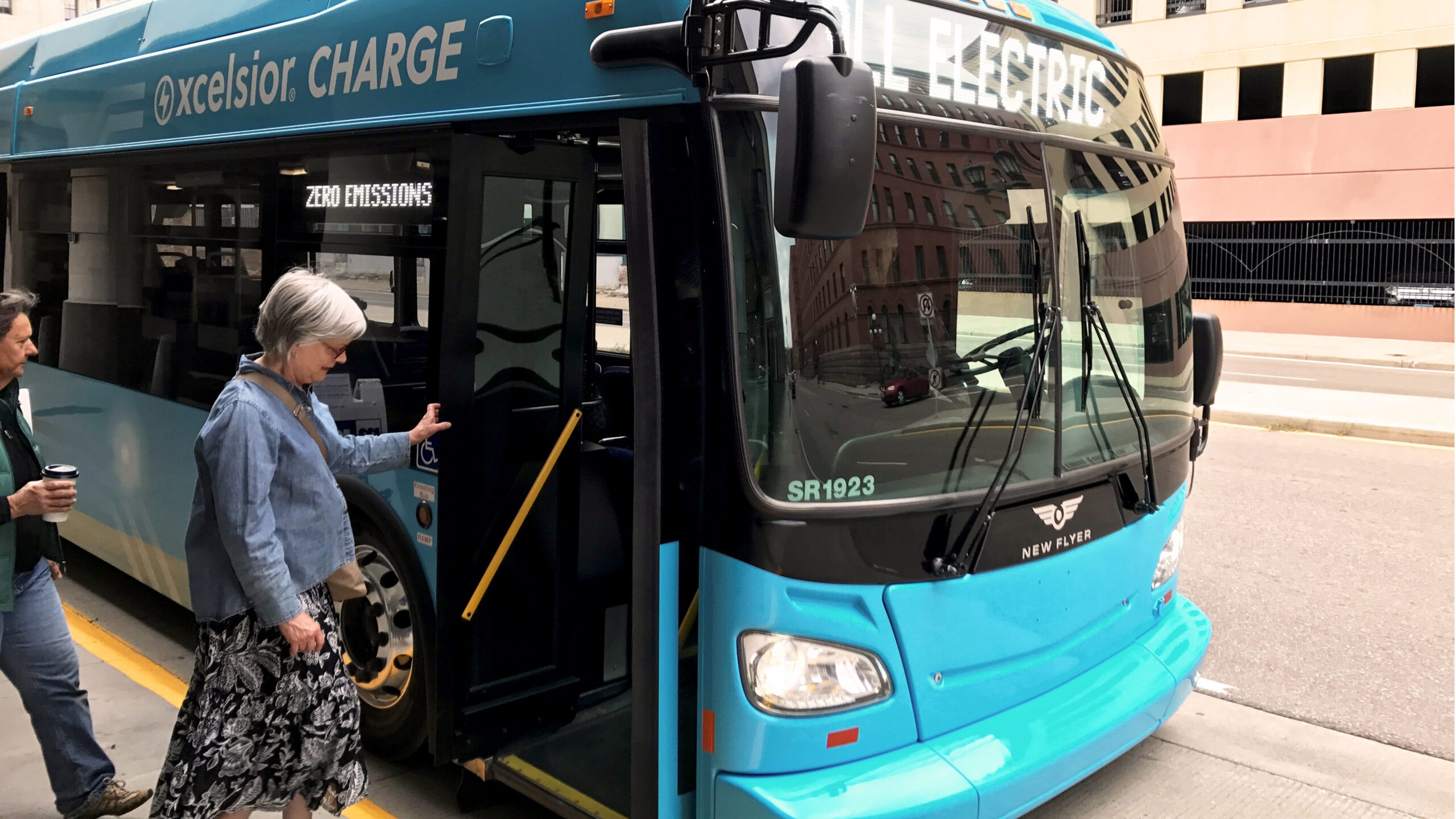
Originally published in 2021 and updated on February 1, 2023.
Transit Equity Day is February 4 and it’s a day that celebrates the birthday of iconic Civil Rights Freedom Fighter and public transit rider Rosa Parks. Parks launched the bus boycotts in Montgomery, Alabama in December 1955, to demand an end to racial segregation on public transportation and public services overall. And as her legacy deserves to live on in American consciousness, so do the legacies of the many Freedom Fighters that acted for justice. Whenever I think about Rosa Parks and the incredible contribution she made to the movement for Civil Rights, I also think about Claudette Colvin, the 15-year-old teenager who also lived in Montgomery, Alabama, and who also refused to give up her seat on the bus to a white woman on March 2, 1955. Claudette was dragged off the bus by white police officers, handcuffed, and thrown in jail, for asserting her civil rights to public transit.
Investing in public transit in this time of great humanitarian and ecological crises is necessary and demonstrates commitment to a society that is sustained by justice.
Both Rosa Parks and Claudette Colvin understood that their right to travel on public transit was about more than just the seat. It was about the freedom to travel for oneself, unconstrained by the biases of others. They knew, as I do, that the freedom to travel may begin with the physical infrastructure to get you around to where you may live, learn, work, shop, worship, and play, but the outcomes of that freedom to travel are about living a fulfilled and independent life, regardless of your ethnicity, gender, class, ability, age, or geographic location.
In Minnesota, the transportation sector is the largest source of greenhouse gas emissions, pollution that is causing changes to our climate, and severe public health impacts, especially on respiratory health. The COVID-19 pandemic has been devastating in communities of color that have already suffered under decades of a health care system full of racial and economic disparities, coupled with long-term exposure to pollution like PM 2.5. And largely, it is BIPOC communities that are the essential workers across many industries that rely on public transit to keep our economy going in this extraordinarily tough time.
We have the opportunity to upgrade our transportation systems and meet the modern era. Electrification of Metro Transit buses is underway, but it is past time that electric buses replace all diesel school buses in the metro area and rural Minnesota. School buses transport our children and young people. These youth are experiencing firsthand the impacts of climate chaos, the COVID-19 pandemic, and the direct harms of white supremacy – they are calling for action from us all.
We must fund public transit that is safe for all, free from harassment and harm, and carbon-free for our health and the health of the environment. Not only that, but it must also be accessible for all people in all places. These demands can be met by increasing the investment in public transit. Surely there is precedent for this.
I am a lifelong resident of Saint Paul and grew up near Selby and Lexington Avenues. I used the 21 bus to get around and I learned so much about my city on that route. My mom worked downtown and I recall riding the bus with her and my sister every day to her work and our daycare. We relied on public transit to get to where we needed to go. This reliance has continued for me right up until March 2020, the last time I rode on the bus or light rail because of the pandemic. Now, I am very privileged to work from home and to have a vehicle. But I remember that old diesel bus how it smelled, how it was always so hot in the summer and freezing in the winter. But buses have improved, no doubt thanks to the funding and advocacy that has been invested over the years.
The Minnesota Legislature has the decision-making power to ensure that the next generation of Minnesotans have the freedom to travel in a safe, clean, and efficient manner and to see that our existing transit infrastructure does not crumble in this hopefully temporary pause from some of us like myself, in utilizing public transit.
Public transit includes buses, light rails, suburban, rural and tribal transit systems, and infrastructure for multimodal mobility like land bridges, and bike walk and roll trails that create connections between cities and towns to parks and recreation, job and educational opportunities, and to one another.
A commendable effort has been made to host hearings at the Minnesota Senate and House Transportation Policy and Finance Committees to learn and recognize the impacts that the last 70 years of transportation policy, planning and development have had on communities around the state. This is an opportunity to right the wrongs of these policies that were decided in a framework of racism and social exclusion. Committing to an investment in public transit that is grounded in the understanding of history, will lead to greater outcomes for access to opportunities, a healthier climate and environmental justice.
